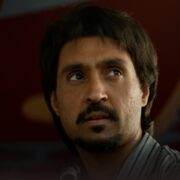THREE IDENTICAL STRANGERS: A Bizarre Story You Won’t Forget
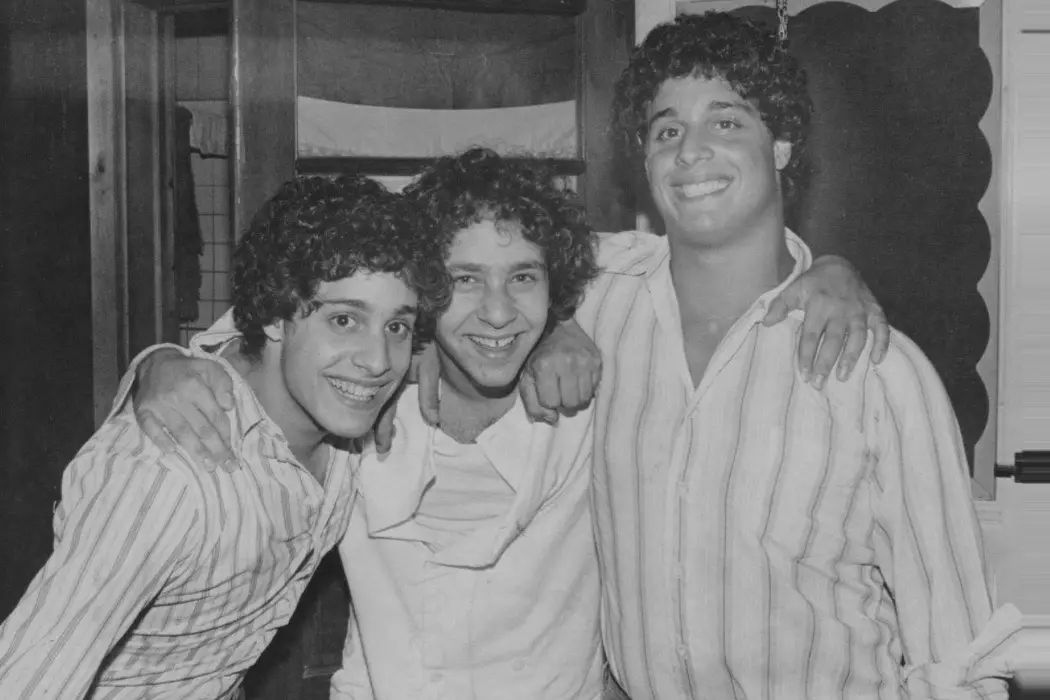
Alex is a film addict, TV aficionado, and book lover.…
Lots of documentaries come about by filmmakers stumbling upon a good story, one so crazy or outlandish that anyone pitching it as fiction would be laughed out of the room. Capturing the Friedmans is a famous example, where Andrew Jarecki began shooting a doc about children’s party entertainers but jumped on a clown’s revelation that his family had been torn apart by a sexual abuse trial. Not all of them take such a dark a turn, but if a documentary manages to capture a you-can’t-write-this-shit air, then I know I’m in for a good time.
That’s precisely how Three Identical Strangers kicks off, as a man recounts showing up for his first day of college only to find everyone inexplicably recognizes him. Turns out his identical brother had gone there the year before, a brother he didn’t know anything about, mind you, and after the feel-good story hit the newspapers, a third brother emerged. That’s only the beginning of a pretty lengthy tale, one that unwinds in the strangest of ways, and one that will prove to be catnip for anyone craving a good story.
Can’t Slow Down
The triplets, Robert, Edward, and David, found each other in 1980, and it turns out there’s a lot to cover over the ensuing decades. Director Tim Wardle basically sets up a chronological narrative, one that drops the audience into the inciting event (the triplets finding each other) and takes you through their journey of discovery. There’s a few cheats in their, but they only exist to make the twists more sharp, and as this thing careens around at breakneck speed, you aren’t stopping to sniff for plot holes.
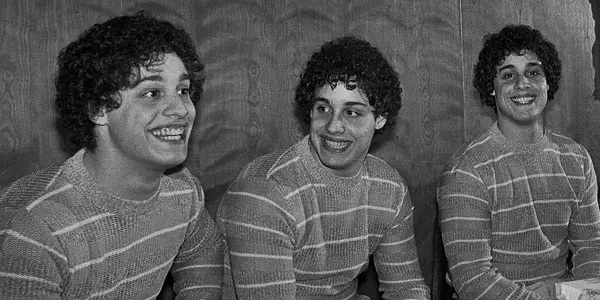
The choice to follow the brothers’ point of view actually leads the film to be split into two distinct parts: a joyful romp down memory lane and a darker investigation into why precisely this happened. The boys, you see, were ecstatic when they found each other, and after the story grabbed the media’s attention, they jumped headfirst into their sudden fame. Wardle and editor Michael Harte embrace the energy of that time, cutting quickly between present-day talking heads, crisp reenactments, and archival media footage. Precisely what kind of crazy stuff were the young men up to, you ask? Let’s just say they have a cameo with Madonna in Desperately Seeking Susan, and that only earns a quick mention.
The light on its feet start becomes more sober, though, dropping the reenactments and leaning more on longer, exposition-filled interviews. It’s still quite captivating, but instead of the party vibe of its beginning, it takes on more of a mysterious bent. Why were these boys separated in the first place? How far-reaching are the ramifications of that choice? And, as comes up with any look at genetic duplicates, how does this reflect on the nature versus nurture debate?
The transition to these meaty subjects is a bit jarring, but the entire story is one jarring event after another. It’s possible that Wardle intentionally didn’t smooth out the transitions, instead letting the audience feel the whiplash right along with the film’s protagonists. These were life-altering events, after all; they really shouldn’t go down smooth.
Gold Star Subjects
If the film has a weakness technically, it’s the rather monotone feel of the interviews, which aren’t set dressed or framed particularly interestingly. Wardle has worked primarily on television documentaries, and the low-budget, perfunctory feel of many television setups invades Three Identical Strangers. There’s a distinct difference between, say, the way Ava DuVernay suggested themes with the imposing backdrops of her interviewees in 13th and the way Wardle has placed people in pleasingly framed but instantly forgettable locations.
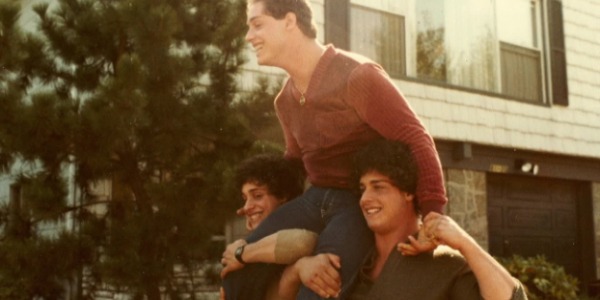
Much of this is forgiven, though, because the brothers and their families are such effusive subjects. This is a story they’ve been asked about many times (the film features the archival footage to prove it), but they come off as neither bored by nor inured to the drama that unfolds. They crack jokes with contagious chuckles and get riled up about the injustices that are uncovered. Their openness invites the audience in just as much as anything Wardle and his team does, meaning the brothers gifted him not only a great story but also great storytellers.
Overcoming The Familiar
While I hadn’t heard anything about the triplets or the other identical siblings they become linked to, it’s quite clear that many will know bits and pieces of the story coming in. After all, the boys were media sensations in the ’80s, enough so that they were able to start a restaurant in New York City. Even the title of this film isn’t unique to the tale that unfolds; twin sisters Elyse Schein and Paula Bernstein, who are briefly seen here, put out the memoir Identical Strangers ten years ago.
The potential familiarity of the story and its themes bring into question whether the runaway train approach will be as thrilling to those already in the know, and while I can’t speak to whether the unfolding narrative is as riveting the second or third time you hear it, I can say that the broader ideas batted around do feel a bit stale and underdeveloped.
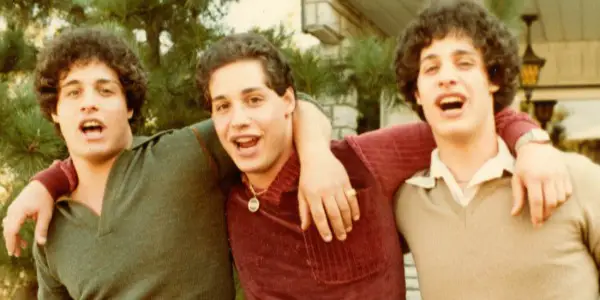
This is perhaps a consequence of the speedy storytelling the film otherwise benefits from. Yes, moving from point A to B to C quickly keeps things lively, but it doesn’t give you time to dwell on the huge ideas the film brings up. Anytime you dig into the nature versus nurture debate you’re dealing with philosophical questions that cut to people’s core, and the brief, broad claims the film posits in its conclusion ends up feeling unsupported by what came before. To end on such a note requires more time to be allocated to thoughtful examination, and Wardle had clearly traded away time for speed.
Three Identical Strangers: Conclusion
The story of triplets Robert, Edward, and David is more than enough to capture your attention, and Wardle keeps the tale moving quickly through twists and turns. It potentially needed to brake more often to let its observations settle, but you won’t realize that until after the credits roll. It’s too easy to get swept up by this documentary to worry about its minor failings.
What did you think of Three Identical Strangers? Did it hold your rapt attention or did your mind start to wander? Let us know in the comments!
Three Identical Strangers was released in the US on June 29, 2018. For all international release dates, see here.
Does content like this matter to you?
Become a Member and support film journalism. Unlock access to all of Film Inquiry`s great articles. Join a community of like-minded readers who are passionate about cinema - get access to our private members Network, give back to independent filmmakers, and more.
Alex is a film addict, TV aficionado, and book lover. He's perfecting his cat dad energy.

